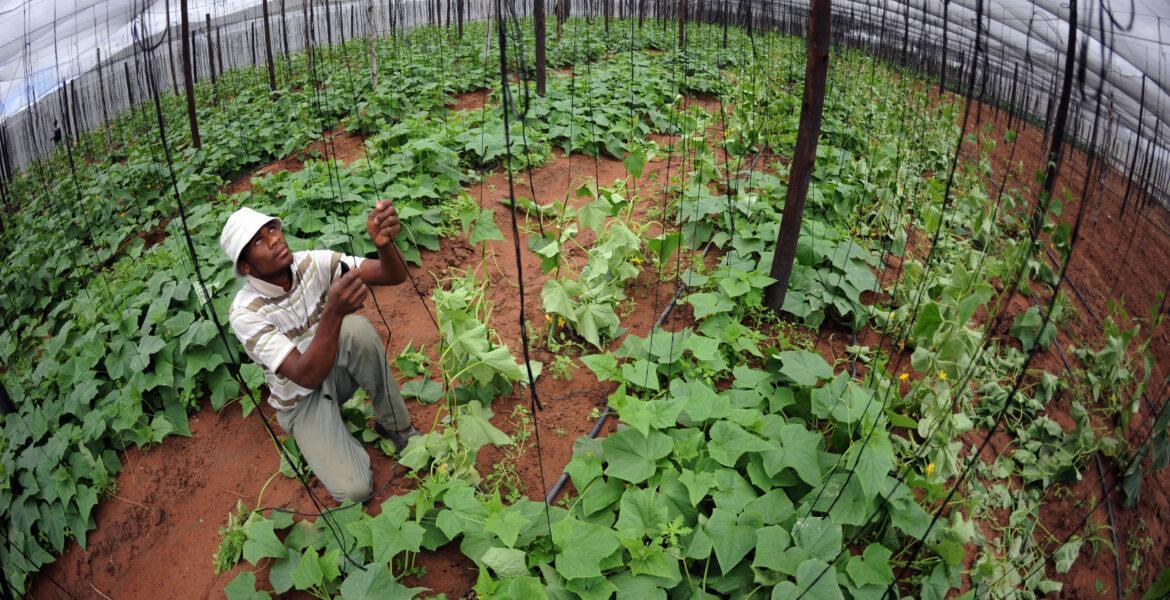Africa-Press – Botswana. The agricultural sector started 2023 on a high note as horticultural farmers were happy with the ban on imported vegetables while consumers complained about the shortage of vegetables.
Midway through the year local horticultural farmers had filled the void and the sector experienced great growth.
Horticultural farmers applauded government for the import restriction of some horticultural products, and they maintained that the country would soon be self-sufficient in horticulture produce.
In an effort to attain national food security and to contribute to the economy, Batswana have been urged to exploit value chain development, as it had the potential to catapult the country into a high-income economy.
Speaking during the National Agricultural Research and Development Institute (NARDI) value chain assessment launch in Kanye in September 2023, Assistant Minister of Agriculture, Mr Molebatsi Molebatsi, said well-developed value chains contributed to decreasing poverty by increasing productivity and adding value to the products.
Held under the theme: Leaving no one behind in agriculture, he said, it was relevant as through the value chain studies NARDI would be in a position to highlight areas where all participants in agriculture could play an impactful role.
Mr Molebatsi said the research would enable the identification of areas where competitiveness, efficiency and maximum returns in the agricultural sector could be achieved.
The outcome of the study, he said, would also identify gaps across the value chain and provide recommendations for policy interventions to guide research and agriculture commercialisation.
Different stakeholders were urged to work together towards attainment of food security and to attract the youth to farming.
Minister of Entrepreneurship, Mr Karabo Gare, officiating during Mosesedi harvest day in May 2023, said government was working tirelessly for citizen inclusion, adding that value chain development had to be exploited to open doors for Batswana.
He said the country had resources and the capacity to produce some of the products it imported, adding that the import bill was high and that it could be used to create employment and contribute to the economy.
Farmers were advised to take advantage of all available platforms to gather and share information that could be used to grow the sector.
Speaking during a farm produce fair in Mmathethe in September, Mr Omphemetse Mogorosi, founder of Farmers Clan, said the fair provided a platform for farmers to benchmark from various exhibitors and to network for the sector to be profitable, to create jobs, decrease the import bill and attain food security.
Temo Letlotlo was launched in October in Kanye and has two components: Household food security and national food security.
The household food security component will assist micro scale farmers with 100 per cent subsidy and will target farmers with no wage or with a monthly income of up to P2 500. Micro scale farmers will also be capacitated through inputs to grow their crops and to meet their household food security needs.
The national food security component targets small-scale, medium-scale and large-scale commercial farmers as well as groups and clusters.
Under the component, farmers will be provided with seasonal loans at prime rate through the National Development Bank (NDB) to purchase inputs. They will be expected to produce grain on a commercial scale and to market it through Botswana Agricultural Marketing Board (BAMB) and other channels to meet national food security needs and eventually to export the surplus.
Farmers have also been implored to embrace mindset change and do things differently in order to ensure that Temo Letlotlo produces the intended results.
Most Batswana are of the view that the programme will reduce dependency and that they will have to work hard.
Pertaining to animal production, Batswana have been advised to register for the European Union market as it was more profitable.
During the BMC-EU market workshop in Gasita in November, Dr Kesolofetse Matlhaba from Kanye Veterinary Services highlighted that every Motswana had the right to sell to the EU market provided they satisfied the requirements.
BMC livestock procurement manager, Mr Motlhokomedi Gaetshetse said farmers had to take good care of their cattle as well as their environment in order to get satisfactory returns.
He said the meat standard was determined by different factors such as fat distribution in the body, internal wounds as well as the number of teeth.
Farmers were further advised to visit veterinary offices for assistance on how to take advantage of the EU market. They were also advised to use government programmes to improve their farming enterprises such as artificial insemination.
Government also imported bulls and breeding cattle from the United States of America in line with the Reset Agenda and to revive the livestock sector as well as ensure value chain development within the sector.
For More News And Analysis About Botswana Follow Africa-Press






